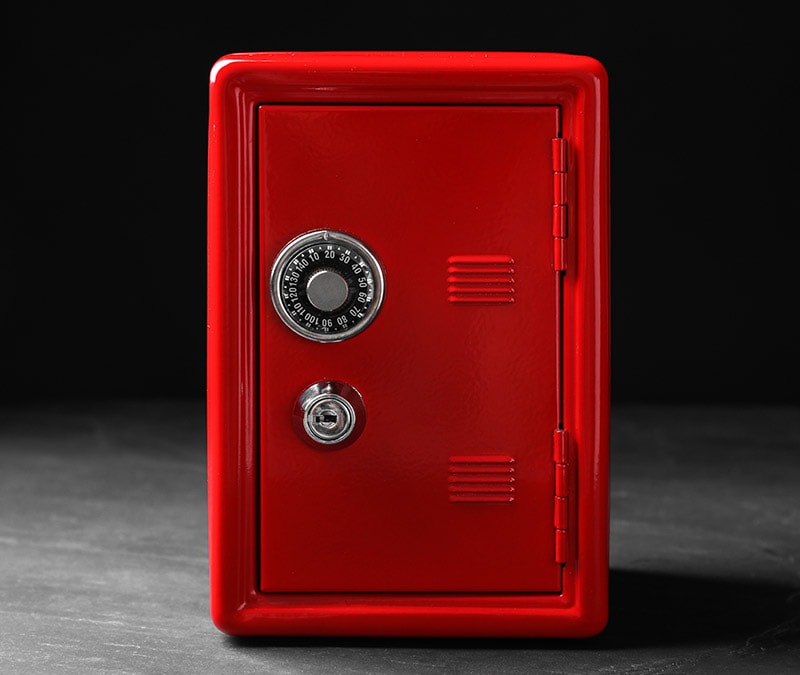How to protect your Social Security number: 10 SSN tips
Protecting your Social Security number is smart because, in the wrong hands, your SSN might lead to various types of identity theft or fraud. These tips can help.

If you want to help protect yourself against identity theft, protecting your Social Security number is a good start. Your Social Security number is a high-value target for ID theft. Getting an identity theft protection plan is one step to consider.
Your Social Security number, or SSN, is a key piece of personally identifiable information. In the wrong hands — like, in the hands of an identity thief — your Social Security number might lead to various types of identity theft or fraud.
What can identity thieves do with your Social Security number? Here’s a sample:
- Open bank accounts
- Open new credit cards or lines of credit to make purchases in your name
- File tax returns to obtain your refund
- Open new service accounts in your name, such as utilities or internet service
- Put you in major debt
- Destroy your credit score across all three credit bureaus
Although you can’t do anything about a data breach that might expose your Social Security number, it’s a good idea to learn what you can do to protect yourself following a breach, and before a subsequent breach. No matter how big or small, no business or industry is immune to cyberthieves who may have identity theft in mind.
It’s critical, then, to learn some of the ways you can protect your Social Security number from falling into the hands of identity thieves and how to help protect your identity should your SSN be exposed in a breach. Less exposure of this vital personal information could potentially mean fewer opportunities for thieves to steal your identity.
Worth noting: It’s important to protect your full Social Security number — all nine digits. But it’s also important to protect the last four digits, since many financial firms and others often use those four numbers to identify you. Lenders, student loan servicers, credit card companies, and credit bureaus all use this information.
Here are some tips for protecting your Social Security number and identity.
Tip 1: Memorize your Social Security number
Knowing your Social Security number by heart can be handy. It’s there when you need it. Plus, you probably won’t be tempted to carry your Social Security card with you or to jot down the number on a slip of paper.
This might seem like a small thing. But if you’re not carrying your card with you, or you’re not writing it down on slips of paper, you’re far less likely to drop that paper or card on the ground or leave it behind at a local bank or government office. This means it’s less likely, too, that thieves might get their hands on your number.
Tip 2: Keep your Social Security card and number in a safe place
Anything as important as your Social Security card deserves a home. This could be a lock box or a file folder kept in a secure place. And don’t forget, your SSN may appear on important documents. They require a safe place, too.
Don’t make the mistake of carrying your Social Security card in your wallet or purse. If you lose these items, or if they’re stolen, you’ve put your SSN at risk. A thief might consider it quite a bonus to get your Social Security number when they snatch your wallet or purse.
Tip 3: Leave home without it
There may be times when you need to show your card to someone. But, in general, it’s a good idea to avoid carrying your card or any documents that display your SSN. It’s possible you might lose your wallet or leave your documents behind.
Not all thieves will want your Social Security number, but many will. Leaving your card at home decreases the chances that these scammers will gain access to your Social Security number.
Tip 4: Rarely share your number
You may have to provide your Social Security number to your bank or employer. But there’s no reason your pizza delivery guy needs it. If someone asks for your Social Security number, ask questions. Why? How will it be used? What if I refuse to share it?
You may be able to offer an alternative form of identification, such as a driver’s license number, student ID, or utility bill.
Tip 5: Beware of phone and email scams
Identity thieves may try to trick you into revealing your SSN. For instance, in a phone or email, they might pose as your employer or a government office requesting information. Avoid sharing your number unless you’re positive it’s a legitimate request.
Better yet, consider calling the requesting organization at a verifiable telephone number to provide the information. Or visit in person.
Tip 6: Create strong passwords
Strong passwords that use a unique combination of numbers, letters, and symbols can help prevent identity thieves from accessing your personal information in online accounts. Here’s one password you should never use: your Social Security number. And don’t use your SSN’s last four digits as a PIN.
Finally, don’t use the same passwords repeatedly. Even if it’s a strong password, and it’s one that you can easily remember, all a hacker has to do is crack that password once. The thief will then be able to access all your important accounts that are protected by that password, even ones that contain your Social Security number.
Tip 7: Shred documents that feature personal information
It’s smart to shred all documents that contain your SSN or other personally identifiable information before tossing them in the trash. The risk? Thieves could steal those documents from your garbage can or retrieve them at a landfill.
Tip 8: Monitor your accounts and be aware of new accounts being pened
If someone obtains your SSN, you may find evidence of unlawful use in your bank, credit, or other accounts. Consider setting up alerts with your financial institutions to flag unusual activity, such as withdrawals or purchases over a certain amount. Watch for changes in your credit score. And check your credit reports. You’re entitled to a free credit report every 12 months from each of the three major credit reporting agencies. Go to AnnualCreditReport.com.
Tip 9: Consider an identity theft protection service
As identity thieves continue to evolve their methods for obtaining personal information, protecting your Social Security number is vital to protecting your identity.
Protecting your Social Security number doesn’t have to be a do-it-yourself affair. An identity theft protection service can help. For instance, it may be able to alert you if your SSN has been found on the dark web. The cost of an identity theft protection service typically ranges from $10 to $35 per month.
Some identity theft protection services include features to monitor your credit reports, alert you when new accounts are opened in your name, or when banks, credit card companies, or other financial services providers check your credit.
For example, if you recently bought a car, you might receive an alert for the new loan. However, if you receive an alert that a new credit card was opened in your name, and you didn’t apply for one, that might be a sign of fraud. Some identity theft protection services allow you to respond to alerts via email, phone, and text messages.
Tip 10: Be careful sharing through electronic devices
There are risks in sharing your Social Security number by email, text, voicemail, and fax. For example, your SSN could get intercepted and read after you send your information. There are sometimes ways to help keep your information safe — for instance, by using a VPN on an unprotected Wi-Fi network. But the safest way to share may be face to face with someone you know and trust.
Your Social Security number is a big responsibility and a vital component of your identity. You may not be able to control whether it’s exposed in a data breach. But there’s still plenty you can do to help keep it safe.

Cyber threats have evolved, and so have we.
Norton 360™ with LifeLock™, all-in-one, comprehensive protection against viruses, malware, identity theft, online tracking and much, much more.
Try Norton 360 with Lifelock.
Editorial note: Our articles provide educational information for you. Our offerings may not cover or protect against every type of crime, fraud, or threat we write about. Our goal is to increase awareness about Cyber Safety. Please review complete Terms during enrollment or setup. Remember that no one can prevent all identity theft or cybercrime, and that LifeLock does not monitor all transactions at all businesses. The Norton and LifeLock brands are part of Gen Digital Inc.





Want more?
Follow us for all the latest news, tips, and updates.